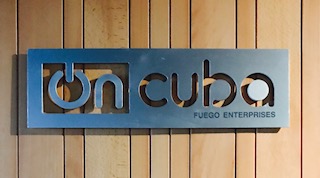 By Natalie Merante | gargoyle@flagler.edu
By Natalie Merante | gargoyle@flagler.edu
In his longest interview in 15 years, Juan Pablo Roquez opened up to Flagler College’s Tracey Eaton about his life as a Cuban spy, and what he had been accused of in the early 1990s. That 2012 piece has now won Eaton a feature story award in the Spanish category from the Florida Society of News Editors.
Eaton, assistant professor of communication at Flagler College, received the award for the piece he did for the Florida Center for Investigative Reporting, an online publication that specializes in investigating injustice across the globe.
“[Juan Pablo Roque] swam and went over to the [U.S.] Naval base, posed as a defector, got political asylum, and then managed to infiltrate this group called ‘Brothers to the Rescue,’ and he became a pilot for them,” Eaton said.
When a Brothers to the Rescue plane was shot down, Roque was believed to have reported to the Cuban government about the dates and times of the flights from the American naval base. This has landed a warrant for his arrest, and a spot on an FBI wanted list.
“To me what’s fascinating about these kinds of stories is that the Cold War goes on,” Eaton said. “The Soviet Union broke up, and so that doesn’t exist anymore, but the same kind of Cold War that was happening when the Soviet Union was strong is happening now. But it’s in Cuba, and Cuba has lasted a socialist government 90 miles off U.S. shores for more than 50 years, so I find it really interesting.”
Eaton is no stranger to Cuba.
While working for the Dallas Morning News in Mexico City, Eaton was sent to Cuba open a bureau for the newspaper; something that an American publication had not done since they were forced out of Cuba by the Cuban government in the 1960s. It was during this process that he found himself immersed in the Cuban culture.
“We wanted to be the first newspaper to return to Cuba. I was given the task to try to learn more about Cuba, and go through all the applications to make that bureau happen. It took seven years and 29 trips to Cuba to get permission from the Cuban government,” Eaton said.
While living there from 2000-2005, he had developed a passion for Cuba. Eaton tries not to bring it into the classroom setting too often, because he says his students may not feel the same passion for Cuban culture as he does, and does not want to turn them off to Cuban history.
“If I can find teaching points where it makes sense to talk about Cuba, or stories that I’ve done about Cuba, then I like to incorporate it, but I try not to overload students on Cuba since none of my classes really deal with Cuba,” Eaton said.



Be the first to comment on "Flagler’s Eaton wins award for feature on former Cuban spy"